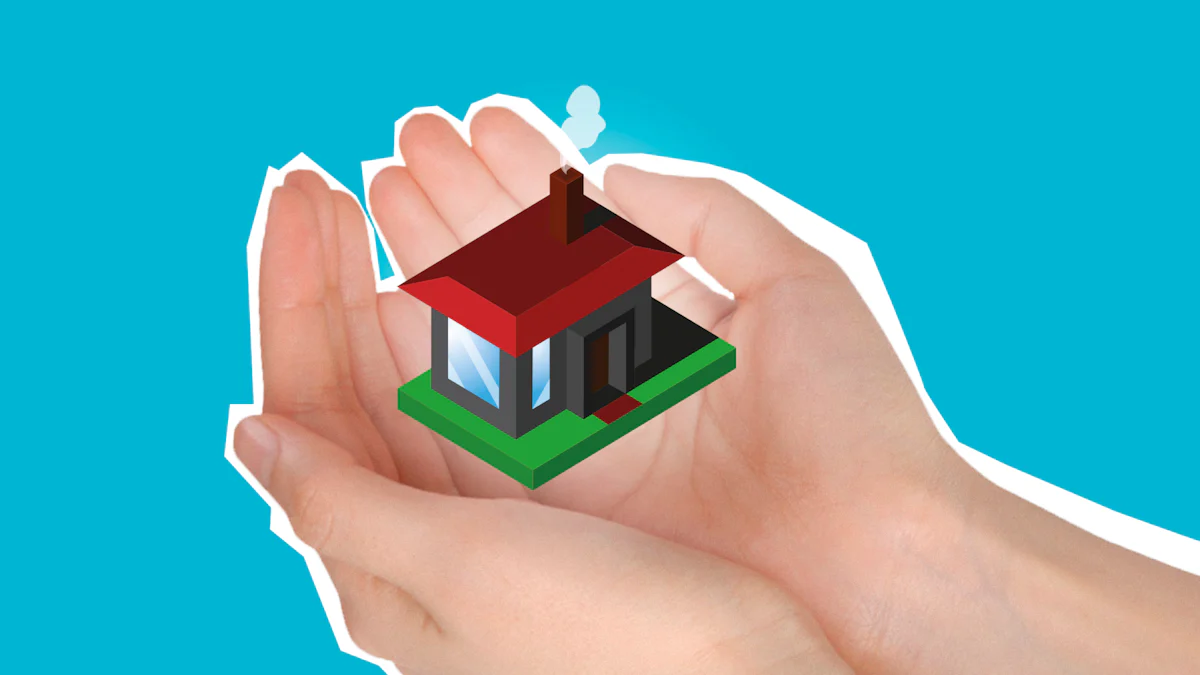Understanding First-Time Home Buyer Programs by State

Understanding First-Time Home Buyer Programs by State
Image Source: pexels
Owning a home can seem impossible for first-time buyers. First-time home buyer programs in [State] help make it possible. These programs give money and advice to make buying easier. Each state has special programs for its people. Buyers should check these programs and start their journey to owning a home.
Key Takeaways
-
First-time home buyer programs offer money help and advice. They make owning a home easier for those who qualify.
-
Help includes money for down payments, loans you don’t repay, and tax savings. Buyers can pick what works best for them.
- To apply, look up programs, take a homebuyer class, collect needed papers, and work with a lender to make the process easy.
What Are First-Time Home Buyer Programs?
Overview of First-Time Home Buyer Assistance
First-time home buyer programs help people buy their first home. These programs are for those who haven’t owned a home in three years. They give money and better loan terms to new buyers. This makes it easier to save for a down payment or get a loan. These programs are made to help people who might not afford a home otherwise.
Types of Assistance Offered (Down Payment Help, Grants, Loans)
First-time home buyer programs in [State] offer different kinds of help. Some common types include:
-
Down Payment Assistance (DPA): Money or loans to pay upfront costs.
-
Forgivable Loans : Loans you don’t have to repay if rules are followed.
-
Closing Cost Assistance : Help to pay fees when buying a home.
-
Matched Savings Programs : Programs that add to your savings for a down payment.
- Tax Credits : Ways to lower taxes, saving up to $2,000 yearly.
These options let buyers pick what works best for them.
Benefits of Using These Programs
First-time home buyer programs in [State] save buyers money. Many give grants or loans that don’t need to be paid back. Government loans often let buyers pay little or no down payment. Matched savings and tax credits also make buying easier. These programs help people afford homes and build wealth over time.
First-Time Home Buyer Programs by Region

Image Source: pexels
First-Time Home Buyer Programs in the Northeast
First-Time Home Buyer Programs in New York
New York has programs to help first-time buyers own homes. The State of New York Mortgage Agency (SONYMA) offers low-interest loans and help with down payments. The Achieving the Dream program gives low-income families better interest rates. These programs make buying a home easier in this costly housing market.
First-Time Home Buyer Programs in Massachusetts
Massachusetts helps first-time buyers through MassHousing, offering affordable loans and down payment help. The ONE Mortgage Program is another option with low-interest loans. It also doesn’t require private mortgage insurance. These programs help people afford homes and find stable housing.
First-Time Home Buyer Programs in Pennsylvania
Pennsylvania’s PHFA (Pennsylvania Housing Finance Agency) has programs like Keystone Home Loan and Keystone Advantage Assistance Loan. These programs offer low-cost loans and help with closing fees. Buyers can also use educational tools to learn about buying a home.
🏡 Tip: Many first-time home buyer programs in [State] include workshops. These can teach buyers how to handle homeownership responsibilities.
First-Time Home Buyer Programs in the Midwest
First-Time Home Buyer Programs in Illinois
Illinois helps buyers through the Illinois Housing Development Authority (IHDA). They offer grants for down payments and affordable loans. The IHDAccess Forgivable program gives up to $6,000 that doesn’t need repayment if buyers stay for ten years.
First-Time Home Buyer Programs in Ohio
Ohio’s housing agency offers down payment help and low-interest loans. Programs like Ohio Heroes support teachers, first responders, and military members. These programs make owning a home possible for community helpers.
First-Time Home Buyer Programs in Michigan
Michigan’s MI Home Loan program provides low-interest loans and down payment help. It also supports buying homes in certain areas to improve underserved neighborhoods.
🌟 Note: First-time home buyer programs in [State] often have income and credit rules. Buyers should check their state’s specific requirements.
Eligibility Requirements and How to Apply
Common Eligibility Criteria
First-time home buyer programs help people buy homes, but there are rules. These rules can change, but common ones include:
-
Credit score : You usually need a score of 620 or higher.
-
Income limits : Your income must be at or below the area’s average.
-
Homebuyer education : Many programs ask you to take a homeownership class.
- Three-year rule : You can’t have owned a home in the last three years.
These rules make sure help goes to those who need it most. Taking a homeownership class also teaches you how to manage owning a home.
💡 Tip : Work on improving your credit score before applying. This can help you qualify for better programs.
State-Specific Requirements
Each state has its own rules based on local housing needs. Some states may ask for a higher credit score, like 640 instead of 620. Others might have stricter income rules or extra help for certain areas. Knowing these differences helps you find the best program for you.
🌟 Note : Look into your state’s rules to find programs that fit your situation.
Steps to Apply for Assistance
To apply for first-time home buyer programs, follow these steps:
-
Research programs : Find out what programs your state offers and their rules.
-
Take a homebuyer class : Many programs require this to prepare you for owning a home.
-
Collect documents : Gather proof of income, credit reports, and other needed papers.
-
Submit an application : Apply online or through a lender working with the program.
- Work with a lender : If approved, a lender will help you finish the process.
Following these steps can help you get closer to owning your first home.
🏠 Reminder : Start early to have enough time for classes and paperwork.
Additional Resources for First-Time Home Buyers
Tips for Improving Credit Scores
A good credit score helps first-time buyers get better loans. It shows you handle money well and boosts approval chances. Here are simple ways to improve your credit:
-
Check your credit report often and fix any mistakes.
-
Pay all your bills on time to build trust.
-
Keep your credit card balances low, not near the limit.
-
Don’t open new credit accounts unless you really need to.
- Use different types of credit, like cards and small loans.
These steps can make your finances stronger and help you get better loan deals.
💡 Tip : Start working on your credit score at least six months before applying.
Finding the Right Lender
Picking the right lender makes buying a home easier. Look at these things when choosing a lender:
-
What interest rates and loan types they offer.
-
How good their customer service is.
-
The fees and costs they charge for loans.
-
If they have experience helping first-time buyers.
-
Whether they offer pre-approval to speed things up.
- If they can work with unique financial situations.
A lender who knows about first-time buyer programs can make the process smoother.
🏦 Reminder : Compare several lenders to find one that fits your needs best.
Understanding Mortgage Options
Knowing about mortgage types helps you pick the right one. Two common choices are fixed-rate and adjustable-rate mortgages (ARMs). Here’s a simple comparison:
| Feature | Fixed-Rate Mortgage | Adjustable-Rate Mortgage (ARM) |
|---|---|---|
| Monthly Payments | Stay the same for the whole loan | Start low but can go up later |
| Interest Rate Stability | Doesn’t change, even if market rates do | Changes after a set time based on market rates |
| Ideal for | Staying in the home for many years | Moving within a few years |
| Qualification Difficulty | Harder if rates are high | Needs a bigger down payment and good credit |
| Risk | Low risk with steady payments | Higher risk as payments might rise |
Think about your future plans and money situation before choosing.
🌟 Note : Fixed-rate loans are steady, while ARMs work for short-term goals.
First-time home buyer programs help people afford their first homes. They give money, teach skills, and offer helpful advice. This makes owning a home possible for many. Buyers should check their state’s programs and plan ahead.
-
HUD has online tools to help buyers prepare.
-
Housing counselors give one-on-one guidance.
- A national database links buyers with local experts.
Being prepared and using resources can lead to success.
FAQ
How can I find first-time home buyer programs in my state?
Check your state’s housing agency website first. They show programs and rules. Local housing counselors can also help you.
💡 Tip : HUD’s online tools can help find state resources.
Can I still get help if I owned a home before?
Yes, if you haven’t owned a home in three years. Many programs let you qualify again after this time.
🏠 Reminder : Look at your state’s rules for any special cases.
Do I need a high credit score to apply?
No, most programs accept scores as low as 620. Some even help you improve your credit before applying.
🌟 Note : A better credit score can get you better loan deals.